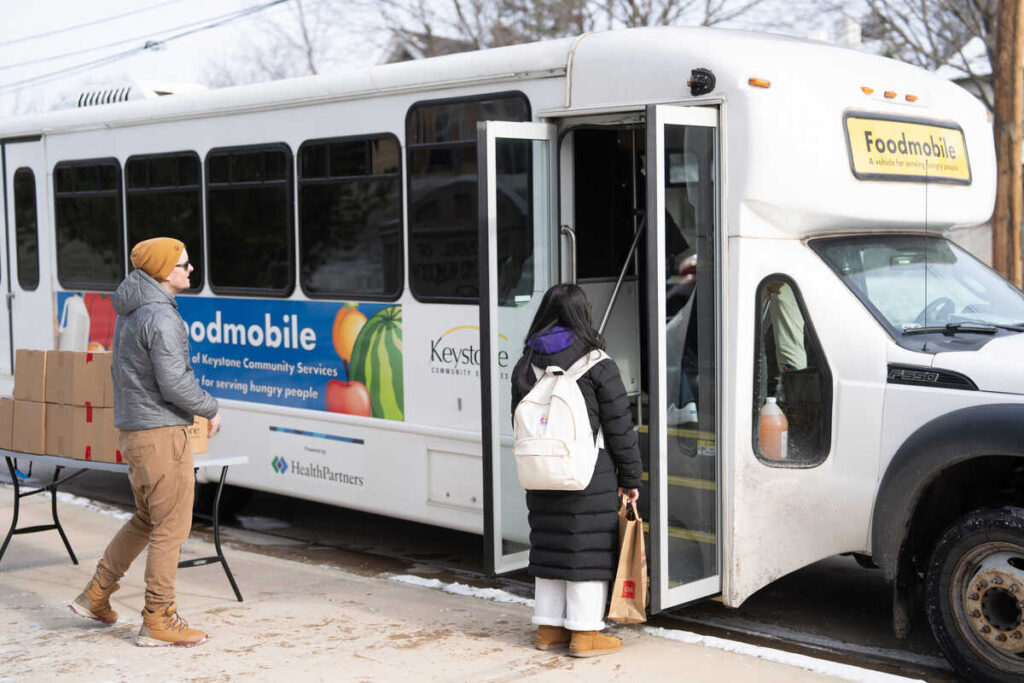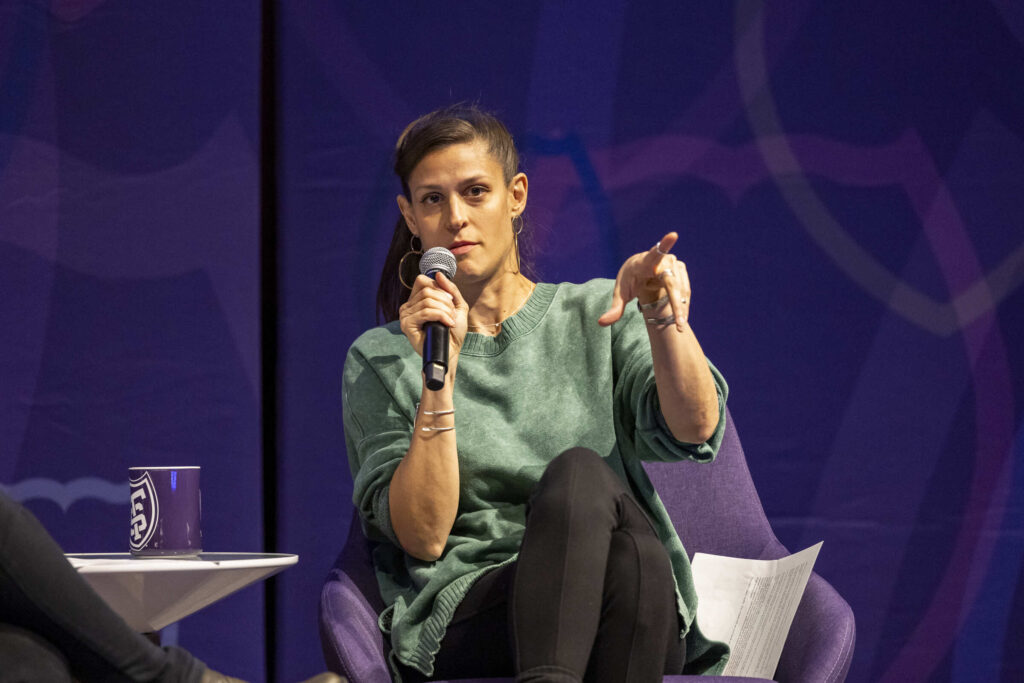We often think of our thoughts as part of a private domain. If we think something, but don’t say it aloud, it doesn’t have any consequences for anyone else, right? Not necessarily.
As part of the Excel! Research Scholars Program sophomore Ashley DeMaio researched how self-talk – the way people talk or think to themselves – may affect racial biases when it comes to sentences in the judicial system.
“Just having people aware of how important our words are – even if we don’t actually say them – can make a big difference,” DeMaio said.
Choosing a topic of importance
DeMaio, a neuroscience major (with a new minor in American culture and differences after this project), wanted to do research as a chance to focus her interests. Research is a large component of Excel!, which prepares undergraduates who are first-generation college students, military veterans or are of an underrepresented race for graduate school.
Drs. Sarah Hankerson and Ryan Bremner, both assistant professors in the Psychology Department, served as her mentors. Bremner’s work has focused on self-talk, a particular interest of DeMaio’s.
With race being an issue of emphasized importance lately, DeMaio wanted to use self-talk with the hope of affecting race relations.
“One of the facts she brought up, that we kept going to, was the huge disparity in sentencing for African-Americans vs. white Americans,” Hankerson said. “We just couldn’t get past that in our discussions.”
In her research paper, DeMaio pointed out that African-American men receive 12 percent longer sentences and have bails 25 percent higher than their white counterpoints. She also cited that, as of 2008, African-American and Hispanics made up 58 percent of the prison population while making up only 25 percent of the U.S. population.
So, how could self-talk potentially affect the sentencing disparities? DeMaio decided to examine what happened when people thought and wrote in first person (“I believe…” or “I think…”) vs. third person (“Ashley believes…” or “Ashley thinks…").
“When you write in first person and you say ‘I’ or ‘me,’ you’re really connecting to your emotions,” DeMaio said. “If you’re angry, you get more angry. … But if you write in third person, … you’re able to take a fly-on-the-wall perspective of yourself. You think about yourself as if someone else was watching you. You’re more objective and focus less on what you’re feeling and more on the whole picture.”
Using third person as opposed to first person already has been shown to decrease anxiety, DeMaio pointed out in her paper.
The results
DeMaio selected mugshots online, of black and white men. Participants in the study were shown one of the mugshots and, no matter what mugshot, the same description of a crime. (That the man had robbed a convenience store, was definitely guilty, but it had been a nonviolent crime.)
Participants were then asked to reflect on this information; some were told to write in first person and some told to write in third. Then, they were asked to say how long the criminal’s sentence should be.
 DeMaio expected to see a decline in sentences for both black and white criminals when participants switched from first person to third. Interestingly, that only held true for the white criminal, who saw a significant decrease (going from a sentence average of approximately 2.3 years to 1.6 years). Meanwhile, the black criminal saw a minor decrease (going from a sentence average of approximately 1.9 years to 1.8 years).
DeMaio expected to see a decline in sentences for both black and white criminals when participants switched from first person to third. Interestingly, that only held true for the white criminal, who saw a significant decrease (going from a sentence average of approximately 2.3 years to 1.6 years). Meanwhile, the black criminal saw a minor decrease (going from a sentence average of approximately 1.9 years to 1.8 years).
“That’s interesting,” DeMaio said. “Because it shows we view different races even though we don’t think of ourselves as a racial society.”
So, why the initially higher sentences and significant decrease for white men? DeMaio speculated that it might have to do with how high racial tensions are in the country right now.
“We can think about Ferguson, what happened in Baltimore – all these cases were out and very public,” Hankerson said. “They might have changed the way people responded to these situations. They may have known that they might have a racial bias and were trying, in some way, to compensate for that.”
DeMaio is interested in digging in more to help understand her findings. She also collected demographic information of the participants, which she will examine. Additionally, she wants to see if changing the nature of the crime – such as making it violent or more personal – might have an effect.
She presented her findings as part of the Excel! Research Scholars Program in August and also at the McNair Student Leadership Conference, held in Wisconsin, in October. In the long run, she’s hoping to understand self-talk in terms of sentencing disparities well enough that the research could be presented to judges.
As for Excel! preparing her for graduate school, DeMaio now has her heart set on the University of Michigan, which is where a lot of research on self-talk has originated.
“She gained confidence in her ability to do the research,” Hankerson said of DeMaio’s growth. “She did a fabulous job learning how to find the resources and to find really good resources to use. … She became less of an observer and more of an active participant. She really was the researcher. That’s the whole goal of this program.”







